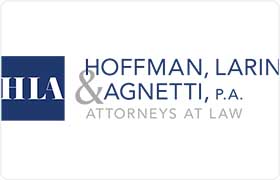Lake Worth Beach Reorganization Lawyer, Florida
Sponsored Law Firm
-
 x
x

Click For More Info:
-
Hoffman Larin & Agnetti, P.A.
909 N Miami Beach Blvd Suite 201 Miami, FL 33162» view mapBankruptcy and Debt Experience and Results Matter
Hoffman, Larin & Agnetti have offices in South Florida. We have a long list of satisfied, well-represented clients since our firm opened in 1975.
800-893-4280
Stuart Marshall Lockman
Dispute Resolution, Health Care Other, Life & Health, Reorganization
Status: In Good Standing Licensed: 50 Years
Stuart M. Lockman
Dispute Resolution, Health Care Other, Life & Health, Reorganization
Status: In Good Standing Licensed: 50 Years
Joshua M Fleming
Wills & Probate, Trusts, Estate Planning, Reorganization
Status: In Good Standing Licensed: 28 Years
Adam David Marshall
Commercial Bankruptcy, Reorganization, Business, Bankruptcy
Status: In Good Standing
 Martin Hoffman Miami, FL
Martin Hoffman Miami, FL
